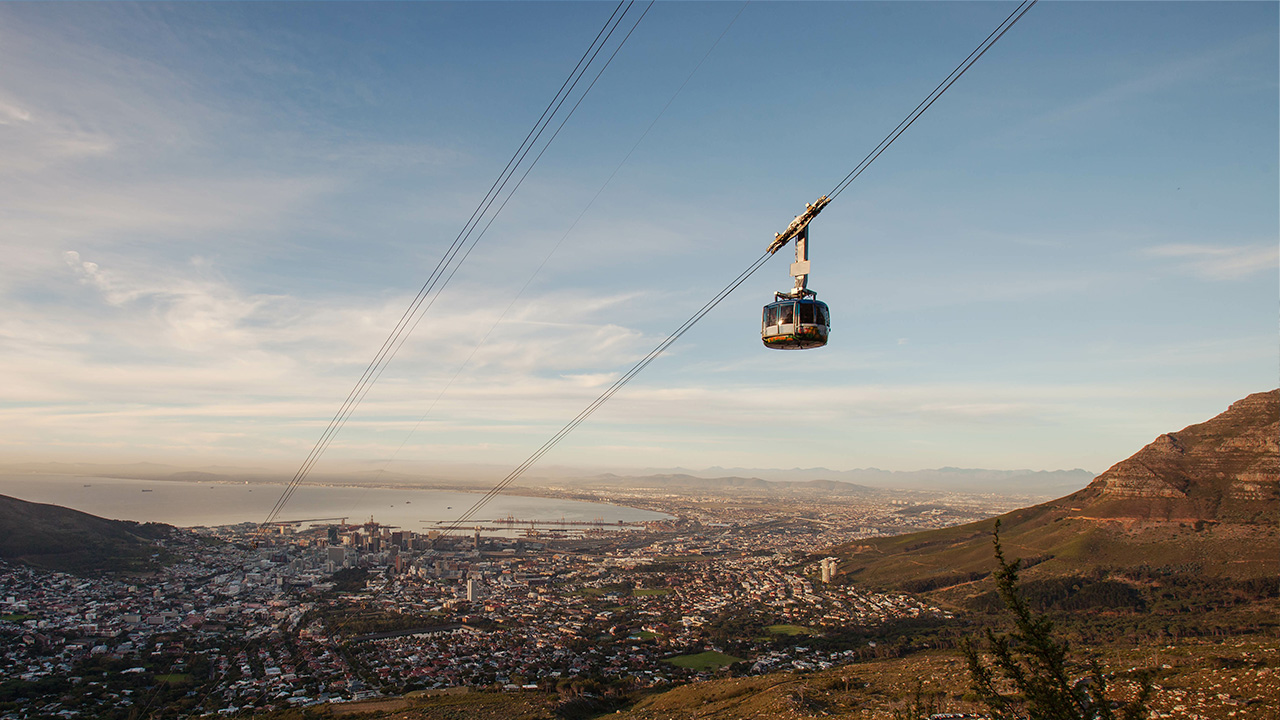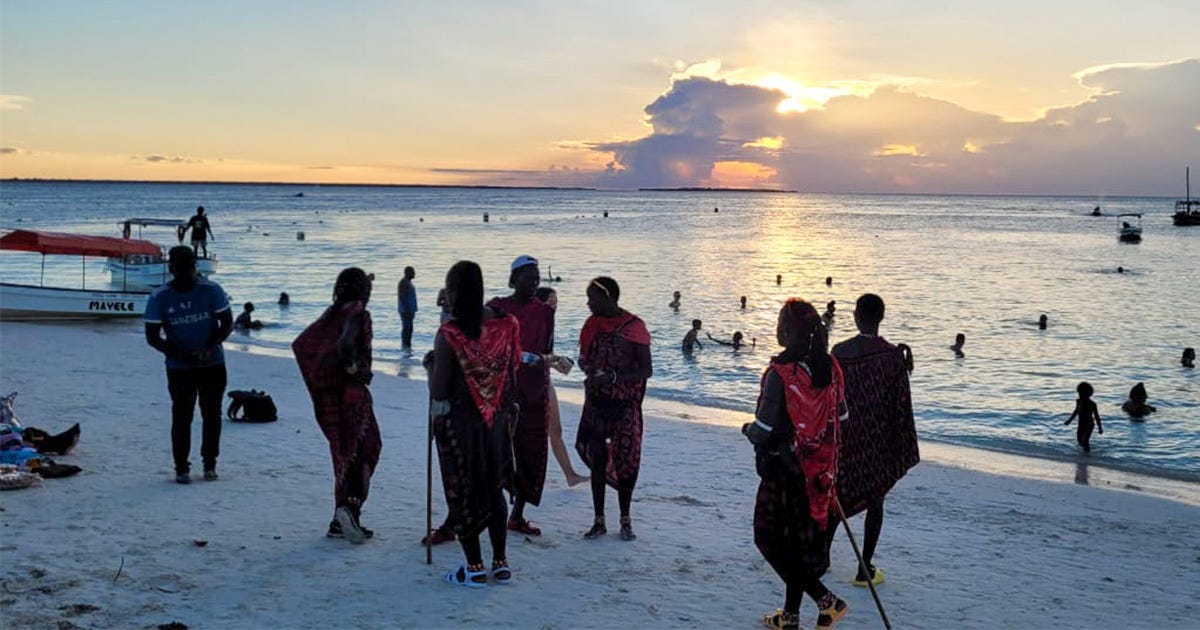
Cape Town is a vibrant tapestry of culture, natural beauty, and history. It is the mother city of South Africa and has one of the nature wonders, Table Mountain.
This guide gives you all the essential information you need if you’re planning to move to Cape Town or want to know more about this up-and-coming city.
While this guide provides crucial information to help with your plans, please remember that countries often update their rules, including visa requirements. So, double-checking the latest facts and details is always a good idea.
How to Get to Cape Town
Cape Town is serviced by its own international airport, Cape Town International Airport (CPT). It’s well-connected globally, making flying in from various locations easy.
The airport is about 20 kilometers from the city center. A taxi ride to downtown takes approximately 20 to 30 minutes, which can vary depending on traffic.
For transportation from the airport, you have options like taxis, shuttle services, or the MyCiTi bus. Taxis offer convenience, especially with luggage, but for a more economical option, the MyCiTi bus is a reliable choice.
It’s advisable to order an Uber upon arrival at the airport. This way, you’ll know the fare beforehand and can avoid the stress of determining whether the individuals offering taxi services are legitimate.
Visa Requirements
South Africa has a relatively straightforward visa policy. Many nationalities can enter visa-free for short stays, up to 90 days. Visa costs and requirements vary, so you must check the latest information from your country’s South African embassy or consulate.
Essential Documents
Make sure your passport is valid for at least six months beyond your intended stay in South Africa.
Upon arrival in Cape Town, you may be asked to present proof of an onward or return ticket. If your travel plans are open-ended, consider using ticket rental services such as onward flight.
While travel and health insurance aren’t compulsory, they are strongly advised for your safety and peace of mind. If you’re looking for an affordable option, we recommend SafetyWing. We’ve put together a comprehensive guide to assist you in choosing the right travel insurance.

Travel Insurance Simplified: Your Guide to Safe and Secure Trips
Find affordable options and why travel insurance is essential for your next trip. Stay safe and enjoy your travels without unexpected troubles!
Language
South Africa has 11 official languages, with English being one of them. You’ll be fine as an English speaker, as everyone speaks it fluently. However, some signs are written in Afrikaans only, so be prepared for some guessing when reading those.
Currency
The official currency is the South African Rand (ZAR). While some establishments might accept US Dollars or Euros, using the local currency is advisable to avoid potentially unfavorable exchange rates.
Credit cards are widely accepted in the city, and many places are cash-free. Therefore, there’s no need to exchange large amounts of cash, as you’ll unlikely use it.
Getting Around in Cape Town
Cape Town offers various transportation options, including car rentals, taxis, and public transport like the MyCiTi bus service.
Car Rentals
Renting a car is a great way to explore the city and surrounding areas at your own pace. Roads are generally well-maintained, with numerous designated parking areas and clear signage.
Most public parking spaces in the city operate on a pay-and-display system or are managed by parking attendants. The fees are generally reasonable but vary depending on the location and duration.
Taxi Services
Uber is available in the city and is fast, affordable, and safe. It is ideal for short distances in the town, offering convenient and cost-effective transportation, especially when going out for some drinks.
Public Transportation
The MyCiTi bus service is a reliable and inexpensive way to get around. The extensive network covers most of the city and its suburbs. It’s very safe to use it, and anyone can get a MyCiTi card, making it an excellent option for budget travelers.
While private van taxis, which operate similarly to public transportation, are available, they should be avoided. These services often involve aggressive driving styles and may overcrowd passengers beyond a comfortable capacity.
Walking around
Cape Town is a walker-friendly city, especially in areas like the V&A Waterfront, Sea Point Promenade, and the city center. However, always be aware of your surroundings, especially at night.
Also, be discreet with your belongings and avoid walking alone or in places you are not familiar with. Being cautious is always a good idea.
What to Wear
Cape Town’s relaxed and diverse culture is reflected in its dress code, which is generally casual and varies according to the occasion and location.
Given the Mediterranean climate of Cape Town, with its warm summers and mild winters, it’s wise to pack your wardrobe accordingly. Also, considering the city is known for its windy conditions, including some wind-resistant clothing could be beneficial.
Overall, the approach to dressing in Cape Town is quite easygoing, allowing you considerable flexibility in your choice of attire.
Best Time to Visit
Summer is often the favored season for locals, perfect for beaches and outdoor activities. As summer is the peak season to visit, rental prices increase!
Spring and autumn might be the best for nature enthusiasts. Cape Town experiences moderate rainfall in these seasons, making beautiful floral displays in the city.
During the winter months, the city experiences frequent rain, making it better to enjoy indoor activities such as visiting museums and wine tasting.
Safety
Cape Town is generally safe for tourists, but it’s wise to stay vigilant like any major city. Avoid flashing valuables and be cautious in less crowded areas, especially at night.
The city is proactive in ensuring safety, with visible police presence in tourist areas and routine security checks. However, If your travels extend to other cities within the country, it’s recommended to study their specific safety conditions, as the country has enormous inequality.
Natural Disasters & Loadshedding
Major natural disasters are uncommon, so these issues shouldn’t cause significant concern for visitors. Although, it’s essential to be aware of a unique issue known as loadshedding.
This refers to scheduled power outages designed to manage the electricity supply and prevent overloading the national grid. Visitors should be prepared for occasional disruptions in power, which can affect various areas at different times.
Despite this, loadshedding is typically well-managed, with schedules available in advance to help plan around these times. It’s a part of life in South Africa, and residents and businesses have adapted to minimize its impact on daily activities.
Health Concerns
While Cape Town does not have malaria, be aware that it exists in other parts of South Africa.
Where to stay
Cape Town offers diverse neighborhoods catering to different preferences:
- Sea Point and Green Point: Both neighborhoods are known for their long promenade with the ocean on one side and a line of restaurants and shops on the other. It is a favorite among both locals and tourists.
- City Bowl: The City Bowl is the historical and commercial heart of Cape Town, nestled in the arms of Table Mountain. It has a variety of restaurants, shops, nightlife spots, and cultural attractions, making it a convenient place for those who want to be close to the action.
- Camps Bay: Camps Bay is known for its stunning beach backed by the Twelve Apostles mountain range. It has a laid-back vibe and breathtaking sunset views, making it a top choice for a luxurious stay.
- Woodstock and Observatory: These neighboring districts are the artistic and bohemian soul of Cape Town, attracting those who are looking for a more alternative and vibrant cultural experience.
Each neighborhood offers a range of accommodation options, from budget-friendly houses to luxury apartments. I’ve stayed in Sea Point for almost three months and loved my experience.
Electrical Plugs and Outlets
Like the rest of South Africa, Cape Town predominantly uses Type D, Type M, and Type N electrical outlets. The Type M is not in the reference picture but is similar to Type D, with the difference being the size of the pins.
The Type M adapter may be hard to find outside of South Africa, so we recommend buying it in the city, as it is easy to find once in the country.

Recommended Apps
To make your stay in Cape Town more convenient, we recommend the following apps:
| App Name | Purpose |
|---|---|
| EskomSePush | An essential app that provides real-time information and alerts about loadshedding, helping you plan your day around these disruptions. |
| SnapScan | A widely used mobile payment app. It’s very convenient for quick and contactless transactions. |
Tap Water Quality
In Cape Town, tap water quality is generally considered safe and meets international standards. However, it’s a good idea to check with your accommodation host to confirm this is also the case in the specific area where you’ll be staying.
Emergency Numbers
| Service | Phone Number |
|---|---|
| Police | 10111 |
| Ambulance | 10177 |
| Medical & Fire | 021 535 1100 |
Share This Article
What to read next
Disclaimer: This post may include affiliate links. We may receive a commission at no extra cost to you if you click one of them. Thank you for your support!


